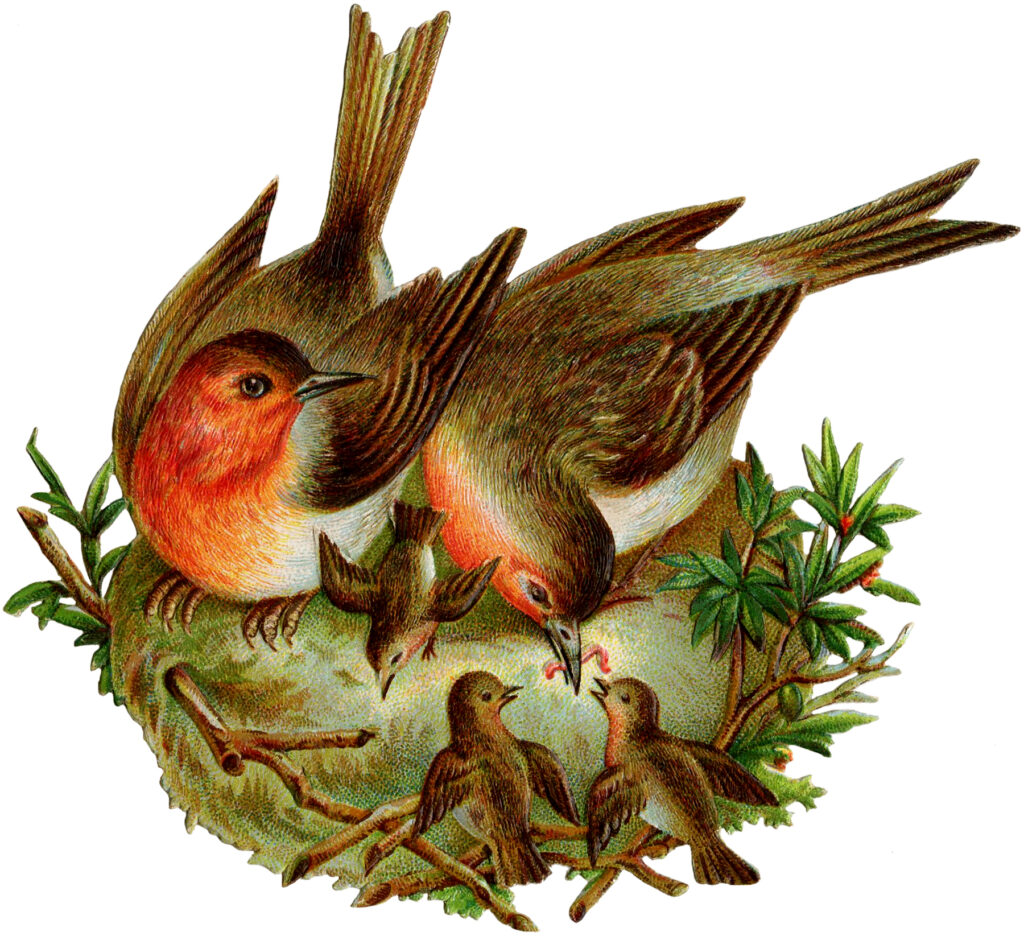
Finding a home is one of the most basic needs of all living entities. Even the birds and beasts are driven to build a nest or find a den, a hollow in a tree or log, a safe burrow or a crack in a rock to live, raise their young, and attempt to be safe from the elements and predators. In human society, buying a home or paying rent is probably the biggest expense that people have to meet. Many spend their entire adult lives in great debt and anxiety, trying to pay off the mortgage, all in the hope of having a secure and permanent home.
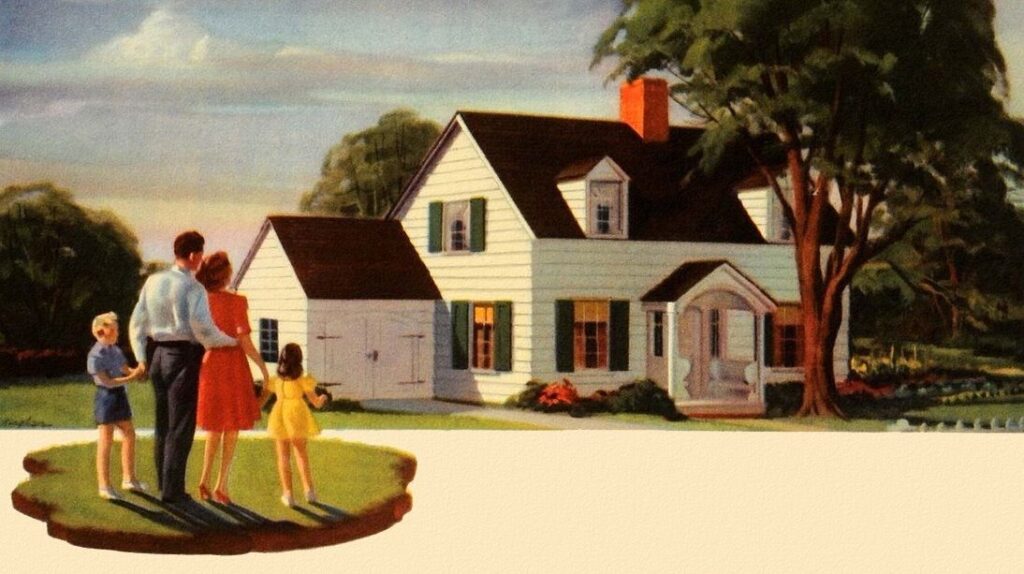
But eventually – and ‘eventually’ happens very quickly (just ask any old person like myself) – they are forced to leave. Either they die and their body is carried out on a stretcher, or they get too sick or incapable of living at home and end up in a hospital, nursing home or hospice for the dying. All those years of work, all of those memories of raising a family, all of that work renovating and gardening, being “house proud,” all the furniture, possessions, family heirlooms, pictures on the walls and fancy nick-nacks – they are all lost.

People who work in the nursing and aged care industries often have a great fear of becoming old, after seeing the painful reality for many people who grow too old to live and cope at home, and are forced into a retirement home or nursing home. Just at the time when they feel they deserve to rest, safe and secure after all of their life’s endeavours, they experience that all that they have worked for, all of their dreams of having a perfect and eternal home with their families, are ripped away from them.
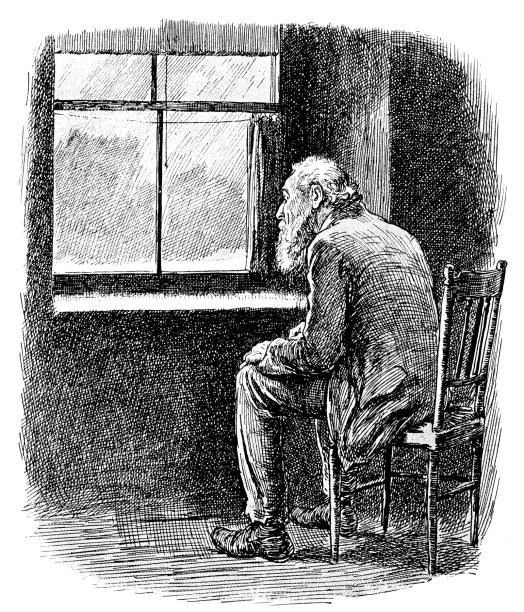
It is often painful enough for the empty-nesters when they rarely see their busy children, but eventually they lose the nest as well. Many become depressed and numb, losing all interest in life and seeing no future for themselves but death, and they retreat into the past. They daydream and reminisce about the ‘good old days’ when they felt that life was full of meaning and promise, when they were first married, bought a house and began to raise their children.

In a report for London’s Centre for Policy on Ageing, A. Norman speaks of the trauma of “Losing Your Home.”
It is not sufficiently realized that the loss of one’s home – however good the reasons for leaving it – can be experienced as a form of bereavement and can produce the same grief reaction as the loss of a close relative. Peter Marris in his book ‘Loss and Change’(1974) quotes a study of the reactions of families moved from the West End of Boston under an urban renewal scheme in which it was concluded that:
For the majority it seems quite precise to speak of their reactions as expressions of grief. These are manifest in the feelings of painful loss, the continued longing, the general depressive tone, frequent symptoms of psychological or social or somatic distress, the active work required in adapting to the altered situation, the sense of helplessness, the occasional expressions of both direct and displaced anger, and the tendencies to idealise the lost place. At their most extreme, these reactions of grief are intensely felt, and at times overwhelming.
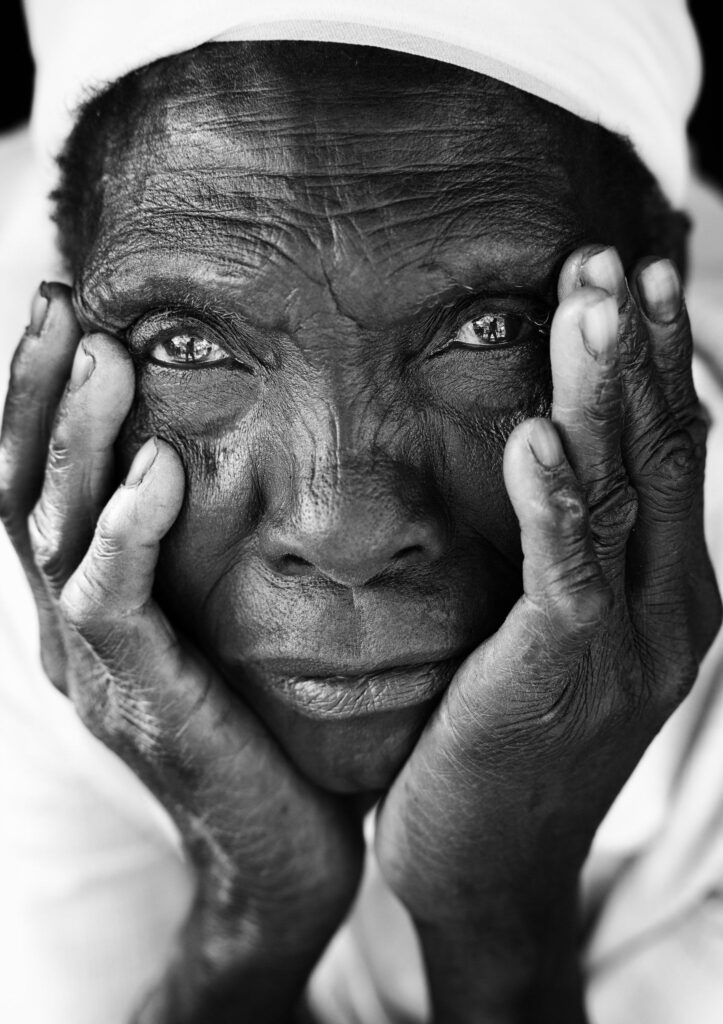
… in a study of slum clearance in Lagos (Nigeria) … residents complained bitterly ‘it feels like being taken from happiness to misery,’ ‘I fear it like death.’… Like bereavement, a change of home should be understood as a potential disruption of the meaning of life … for some, it may be a profound disturbance from which they never recover.
… Old people who are moved into sheltered housing or residential care may or may not be moved from slum conditions, but the sense of loss must surely be equally great for them. Indeed it may be greater if, in the process, they have to sacrifice not only a home and neighbourhood but the greater part of the possessions of a life time. … Gutman and Herbert in 1976 quoted 13 studies which showed that the death rate of elderly persons was unusually high during the first year after ‘relocation’ and particularly during the first three months …
[A. Norman: “Rights and Risk” – London Centre for Policy on Ageing, 1980]
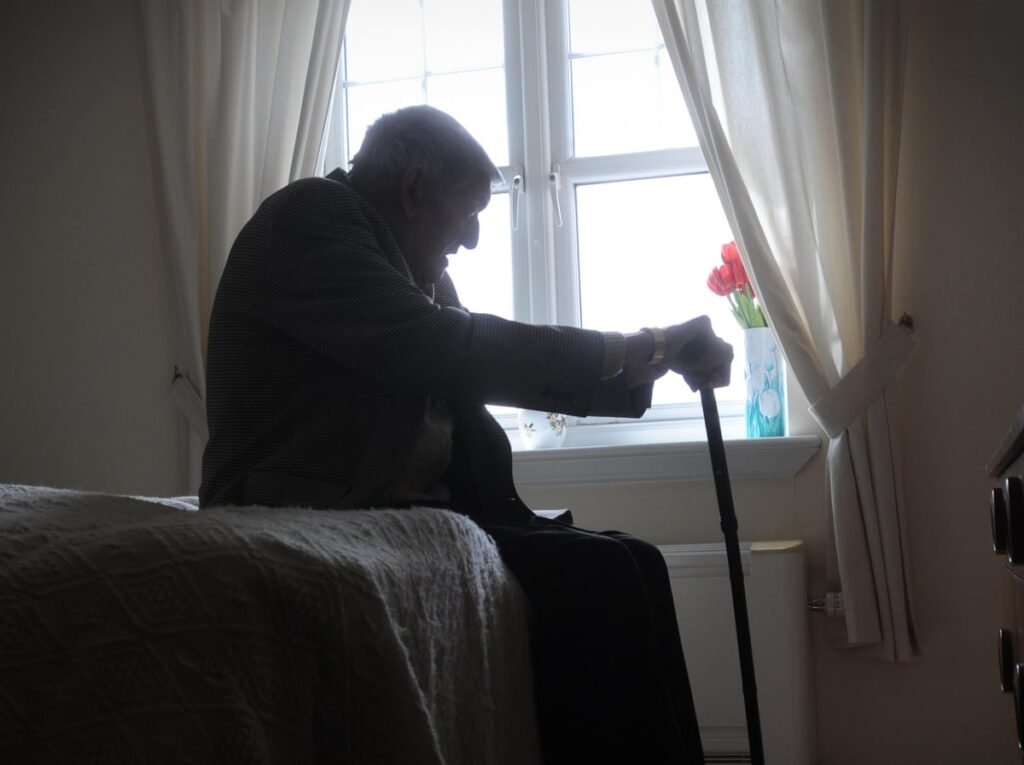
Out of feelings of great compassion for all living entities, whom they know to be Krishna’s prodigal sons and daughters lost in the material world, saintly persons endeavour to warn of the danger and the futility of trying to find a permanent home in the material world, where all of our endeavours to take shelter of material situations, possessions and relationships ultimately lead only to pain and suffering. In the New Testament, we find the following verses:
Do not store up for yourselves treasures on earth, where moth and rust destroy, and where thieves break in and steal. But store up for yourselves treasures in heaven, where moth and rust do not destroy, and where thieves do not break in and steal.
[Matthew 6:19-20]

Do not love the world or anything in the world. If anyone loves the world, the love of the Father is not in him. For everything in the world – the cravings of sinful man, the lust of his eyes and the boasting of what he has and does – comes not from the Father but from the world. The world and its desires pass away, but the man who does the will of God lives forever.
[1 John 2:15-17]
All these people were still living by faith when they died. They did not receive the things promised; they only saw them and welcomed them from a distance. And they admitted that they were aliens and strangers on earth. People who say such things show that they are looking for a country of their own.
If they had been thinking of the country they had left, they would have had the opportunity to return. Instead, they were longing for a better country – a heavenly one. Therefore, God is not ashamed to be called their God. For He has prepared a city for them.
[Hebrews 11:13-16]
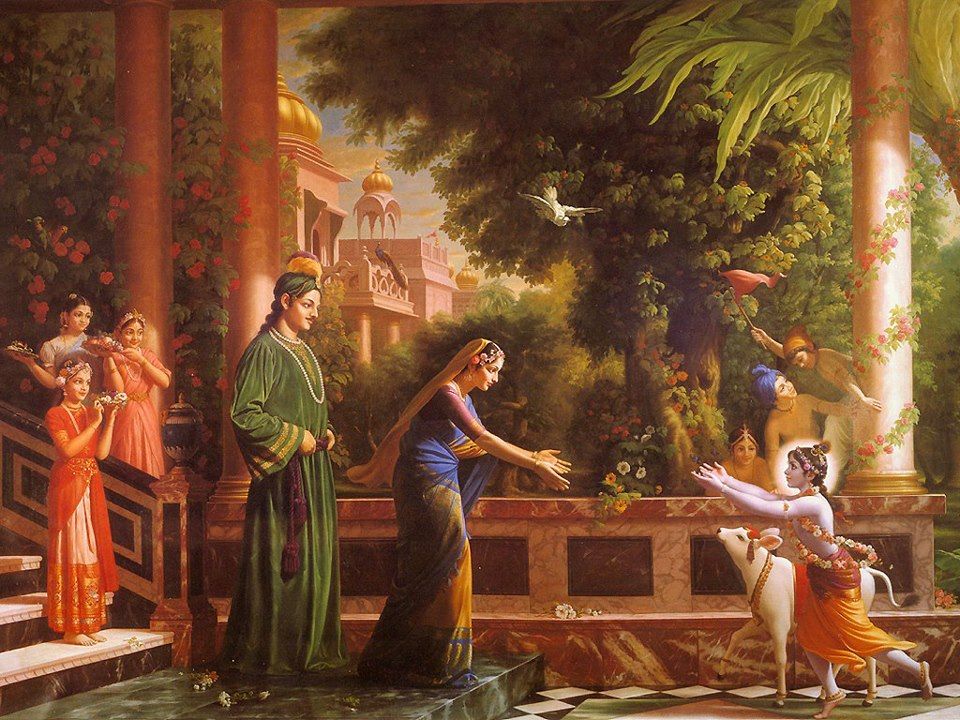
Lord Jesus Christ likened the search for material happiness and security to building a house upon the sand, while taking shelter of Krishna was likened to building on the transcendental foundation of solid rock:
Therefore everyone who hears these words of mine and puts them into practice is like a wise man who built his house on the rock. The rain came down, the streams rose, and the winds blew and beat against that house; yet it did not fall, because it had its foundation on the rock. But everyone who hears these words of mine and does not put them into practice is like a foolish man who built his house on sand. The rain came down, the streams rose, and the winds blew and beat against that house, and it fell with a great crash.
[Matthew 7:24-27]

So, here in the New Testament, trying to find a permanent reality, some shelter or happiness within the material world, is being likened to building a house on the sand – there is no solid foundation, and such a house will sink and crumble, to be washed away by the waves of time. There is no permanent shelter in the material world.
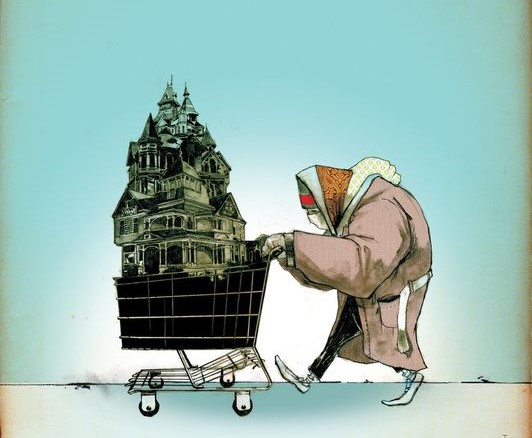
Lifetime after lifetime, the spirit soul who is lost and illusioned in the material world, wanders from place to place, trying to set up a permanent home. Perhaps he buys a house and works for many years to pay his mortgage. He decorates it to make it feel more homely, puts in nice gardens and fills it with various bric-a brac. And just when he thinks “I am so comfortable, at last I have a permanent home,” he is evicted by the heartless landlord known as “Cruel Death.” The Srimad Bhagavatam describes how the actual purpose of the Vedas is to understand one’s own home:
Those who are less intelligent accept the Vedic ritualistic ceremonies as all in all. They do not know that the purpose of the Vedas is to understand one’s own home, where the Supreme Personality lives. Not being interested in their real home, they are illusioned and search after other homes.
[Srimad Bhagavatam 4:29:48]
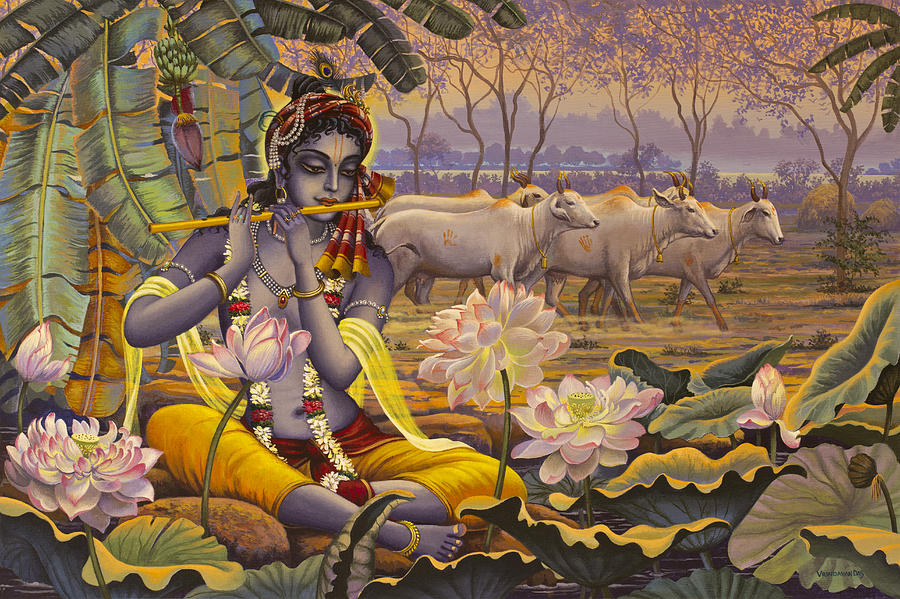
In the purport to this verse, Srila Bhaktivedanta Swami explains:
Generally people are not aware of their interest in life—to return home, back to Godhead. People do not know about their real home in the spiritual world. In the spiritual world there are many Vaikuntha planets, and the topmost planet is Krishnaloka, Goloka Vrindavan. Despite the so-called advancement of civilization, there is no information of the Vaikunthalokas, the spiritual planets. At the present moment so-called advanced civilized men are trying to go to other planets, but they do not know that even if they go to the highest planetary system, Brahmaloka, they have to come back again to this planet. This is confirmed in Bhagavad-gita:
From the highest planet in the material world down to the lowest, all are places of misery wherein repeated birth and death take place. But one who attains to My abode, O son of Kunti, never takes birth again.
[Bhagavad-gita 8:16]
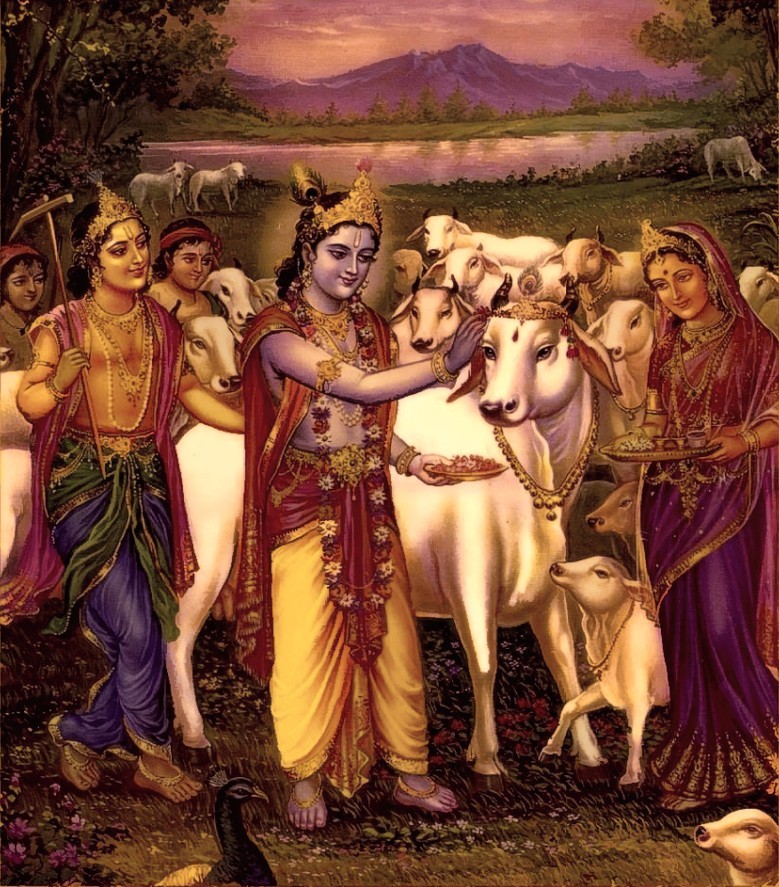
Srila Bhaktivedanta Swami says in his book Easy Journey to Other Planets:
The people I have seen in America are very restless. They go from one apartment to another apartment or from one country to another country. That restlessness is there because we are searching after our real home. To go from this place to that place will not give eternal life. Eternal life is with Krishna. Therefore Krishna says, “Everything belongs to Me, and I have the superexcellent abode, which is called Goloka Vrndavana.” If one wants to go there, he must simply become Krishna conscious …
[Easy Journey to Other Planets ch.2]
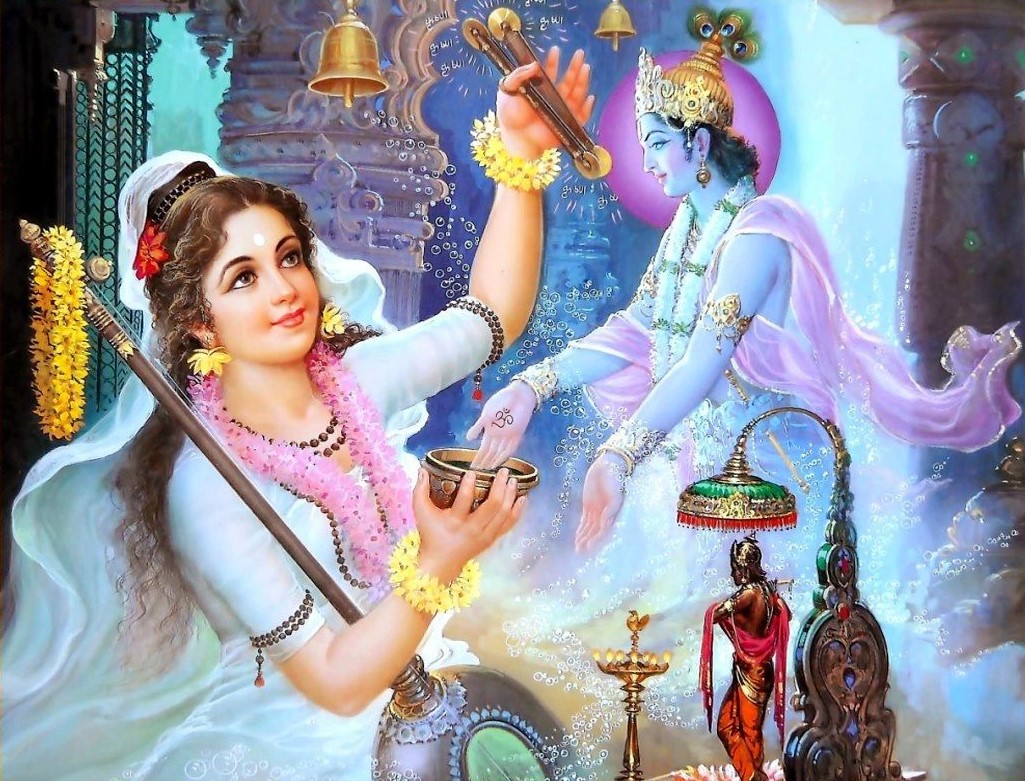
In the purport to Srimad Bhagavatam 4:26:16, Srila Bhaktivedanta Swami explains:
In Srimad-Bhagavatam (10:14:58) it is said:
This material world is not actually a place of residence for an intelligent person or a devotee because here there is danger at every step.
Vaikuntha is the real home for the devotee, for there is no anxiety and no danger. …
Srila Sanatan Goswami, in Sri Brihad-Bhagavatamrita, tells the story of Gopa-kumara’s return to the spiritual world, and how Krishna welcomed him and made him feel at home:
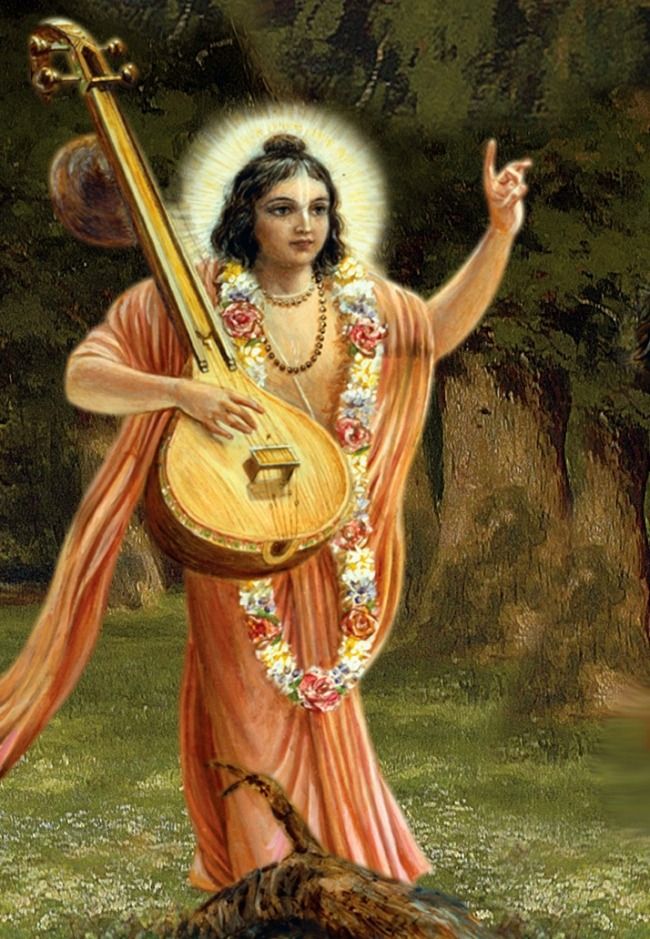
Sri Gopa-kumara said: Following Narada’s instruction, in a sweet voice I chanted Lord Krishna’s dear holy names and I sang of and meditated on His pastimes here (in Vrindavana on earth). When I saw the places of the Lord’s pastimes my heart became filled with love and my body displayed the symptoms of ecstasy. In my heart I am embarrassed. How can I tell others?
Tormented, I passed my days and nights pitiably crying in pain. Soon I did not know whether I was filled with bliss or drowning in an ocean of pain. I did not know whether I was in the flames of a forest fire or in the cooling nectar waters of Sri Yamuna. Sometimes I thought I must have fallen into the hands of a demon. I was always drowning in an ocean of pain. Even the slightest fragrance of happiness would not touch me. Thus I was living in this grove that decorated Vrindavana forest.
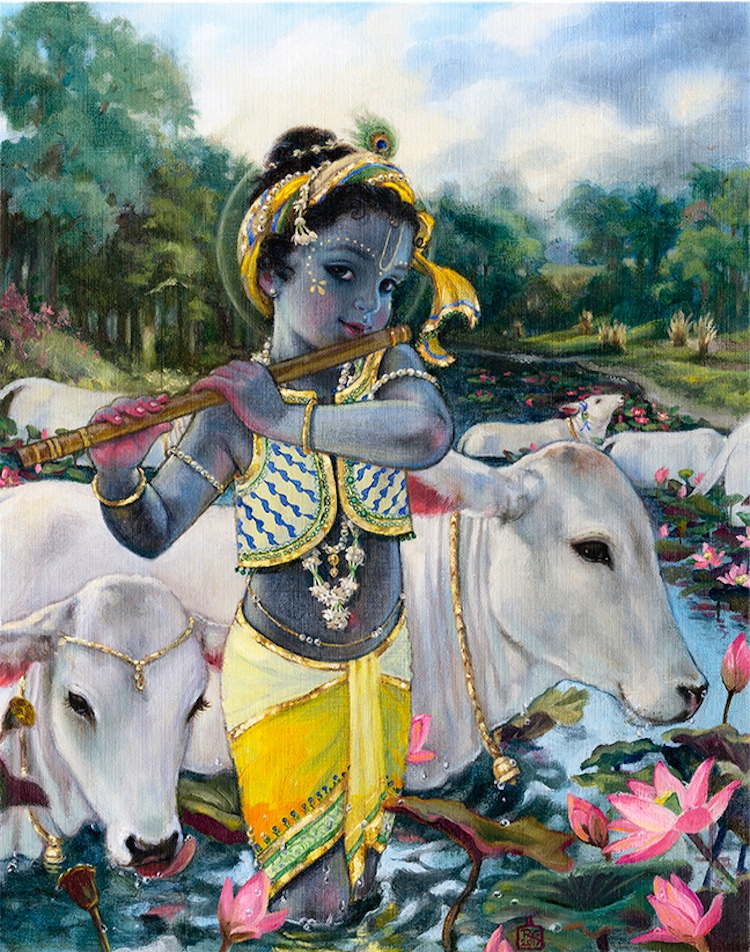
One day, as I was drowning in an ocean of weeping, I fainted. Then I met the crown jewel of all merciful persons. With a hand holding a flute He wiped the dust from my limbs. Again and again this most wise person playfully shook me. He flooded my nostrils with His unprecedented sweet fragrance. I reverently gazed at His lotus face. I quickly got up. My heart filled with joy, I tried to touch His exquisite yellow garment. Making playful melodies on His flute, that best of heroes moved behind me and then fled into the forest. I ran after Him but I could not catch Him.
He disappeared. Not seeing Him, I fainted and fell into the current of the Yamuna. As I was carried along I became unconscious and I opened my eyes. I saw that, carried by a vehicle rising faster than the mind, and travelling along a very wonderful path, I had arrived at a very splendid, flawless place. Collecting my thoughts, I happily saw Vaikunthaloka, wherein were Ayodhya and many other places, and I became filled with wonder. Then, carried along, I left them all behind.
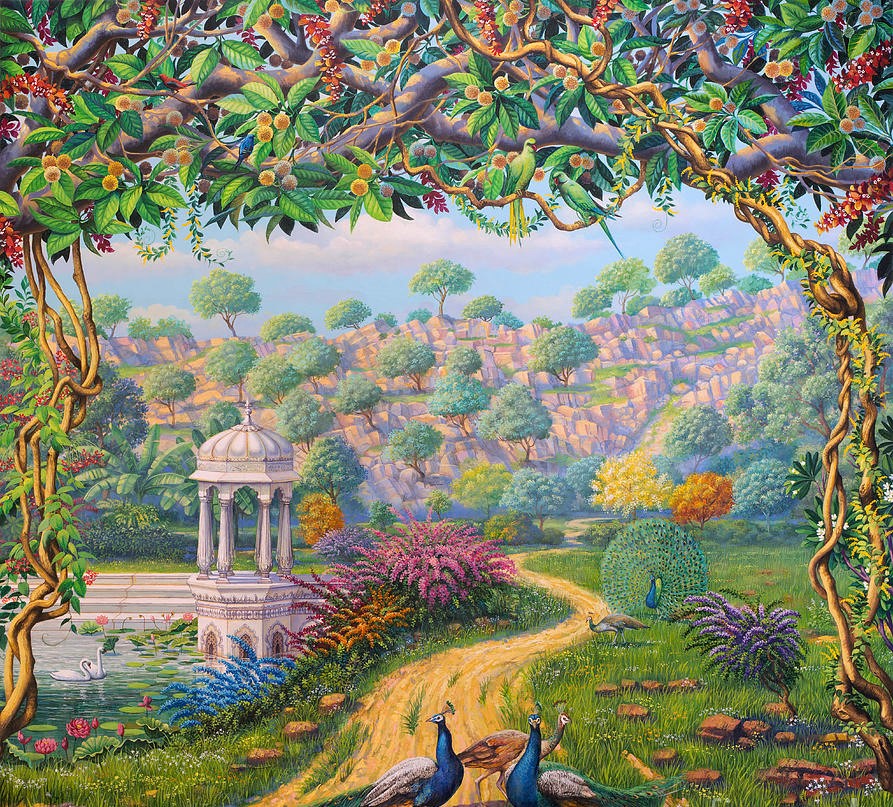
Then I came to effulgent Goloka, which was above all the worlds, and which I had long desired. … There, in Goloka, which the demigods, kings of planets, and their associates could not approach, seeing a country glorious as the sunrise, where there were the ways and customs and human language of Bharata-varsa’s Arya-varta, I became filled with wonder and I plunged in an ocean of bliss. In a moment I saw cowherd men going here and there and elderly gopis picking flowers. Everyone there was extraordinary, different from any people I had seen before. It seemed that someone had stolen the treasure of their hearts.
… Moving my eyes in all directions, far away I saw a palace filled with great sweetness. On that side, and also everywhere, I heard the beautiful singing of the gopis, the sounds of them churning yoghurt, and the tinkling of their ornaments. Suppressing the bliss I felt in my heart, I approached an elderly man who was emotionally singing, “Krishna! Krishna!” and crying. I carefully listened to the broken words he spoke. Simply by hearing the words, “This is the palace of Krishna’s father, the gopa-king Nanda” I fainted, overcome with happiness.
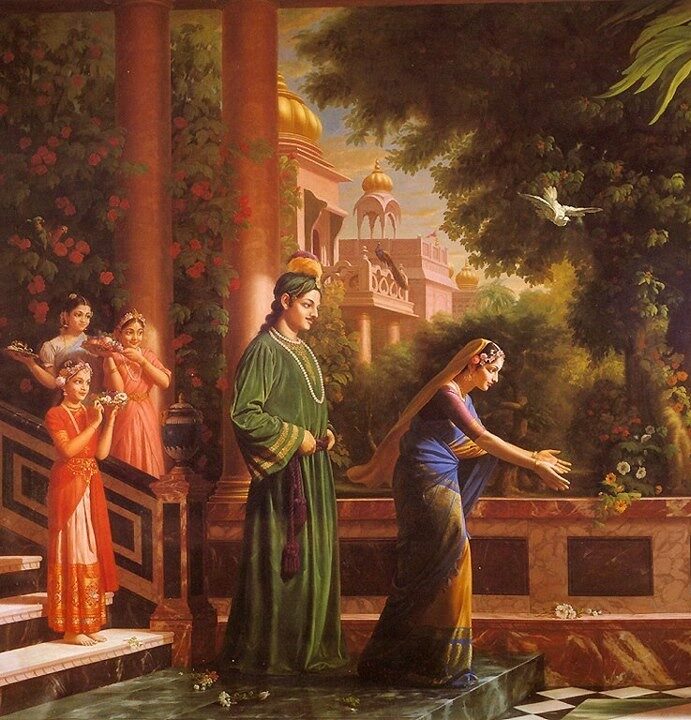
In a moment, brought to consciousness by the kind elderly man, I ran ahead and came to the palace gate. There I saw millions and millions of wonders never seen, heard of, or imagined by anyone. O best of the brahmanas, I could not understand whether all the people were filled with bliss or overcome with sorrow. Whenever I heard the gopis’ songs, I did not know whether they cried in the greatest happiness or the greatest sorrow. As I looked at this place, which I had ascended higher and higher to reach, I thought, “I am in the material world” (it resembled Vrindavana on earth). Then I understood: “I am above all material and spiritual worlds.” …
… Sri Gopa-kumara said: It was as if I was suddenly bathed with great streams of nectar. With a single glance I saw the path she showed. I was stunned with bliss. My legs could no longer move. With a great effort from far away I could hear the sound of cows mooing, and playful, sweet flute melodies filled with many charming waves of sound, that enchanted the people of Vraja, made the trees shed tears that were a great flood of nectar, made the people of Vraja shed streams of tears from their eyes, made milk flow from the breasts of the elderly mothers, and made the swiftly flowing Yamuna become motionless.
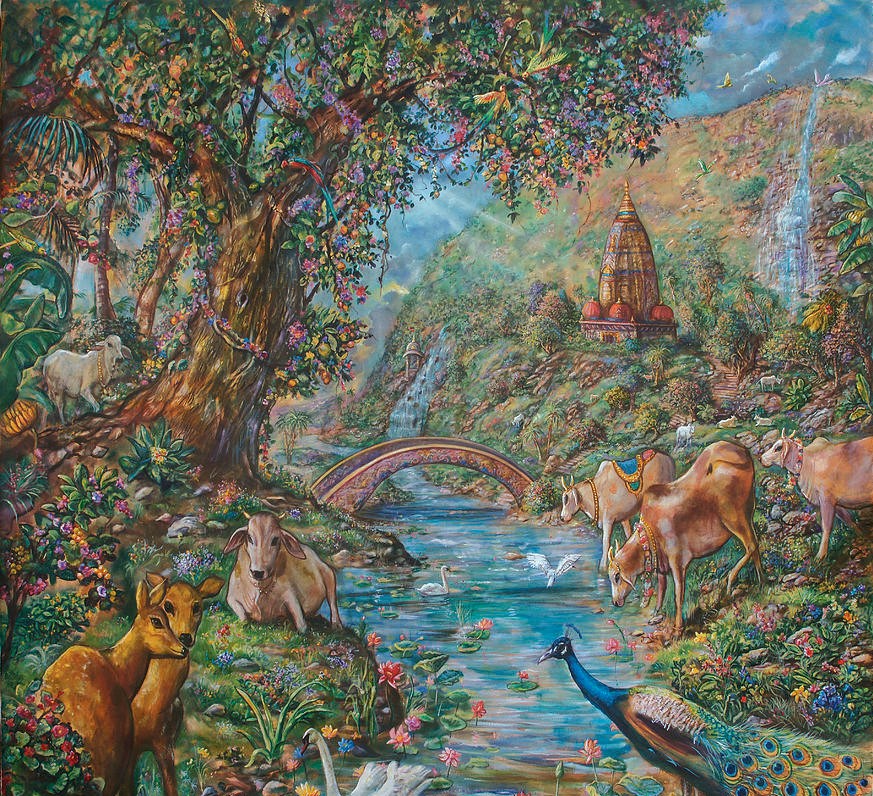
Whether this flute flows with poison or nectar I do not know. Because of it every one in Vraja has become mad. Now they have fainted, becoming unconscious. Then I saw some of the women of Vraja coming from the palace carrying in their hands articles for offering arati. Others, carried on their heads ornaments and delicious foods (Srila Sanatan Goswami explains that in their hands they carried lamps and other things, and on their heads they carried garlands, ointments, fresh butter, sweet rice and other things.)
As they hastily and confusedly ran in the direction of the cows’ mooing and the flute’s music, some of the women stumbled and fell. Some had put their ornaments in the wrong places, some had forgotten to tie their belts and hair. Some, stunned as trees, stayed in their homes, and some fainted and fell to the ground. Some, their faces wet with tears, had fainted and were being carried by their friends. Others, overcome with love, came there and said to their friends: “Look! It is He!”
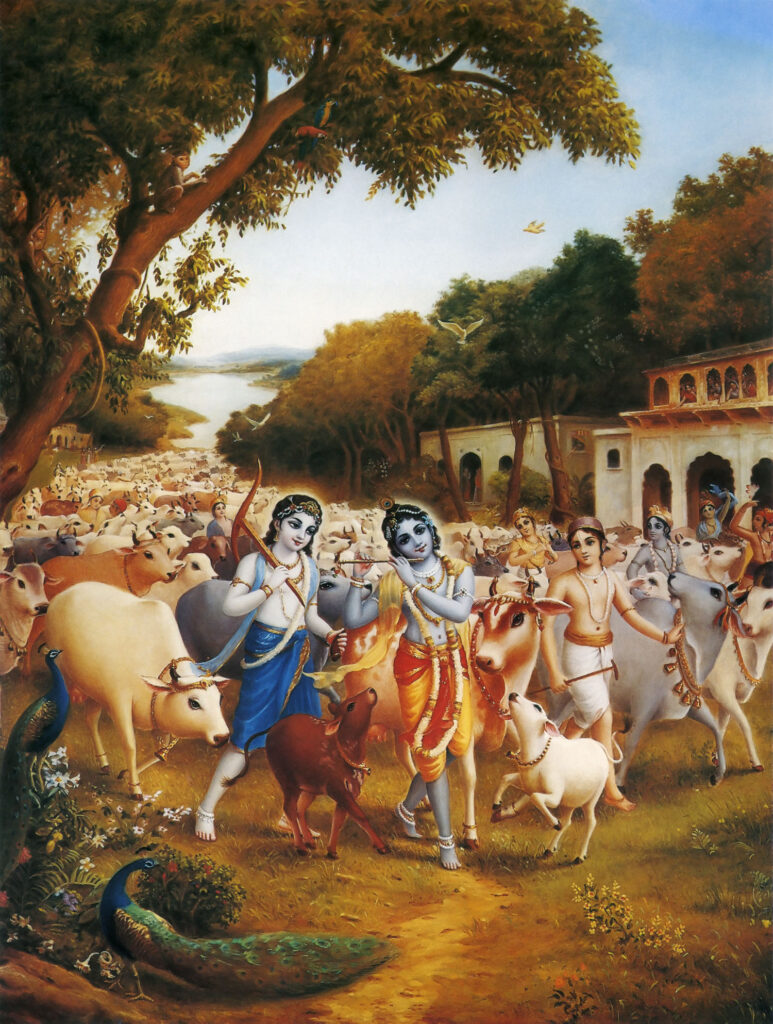
Continually singing His names and pastimes, decorated with wonderful beauty and colourful garments, and their good fortune robbing Goddess Lakshmi of her pride in being fortunate, they ran to the Yamuna’s shore. As if pulled by someone, I ran behind. Then from far away, I saw Him. His hand was glorious with the sweet flute. He quickly ran from His friends and cows, saying, “O Sridama, now I have found my friend Sarupa, who is a brilliant sun shining on the lotus flower of your family,” and gracefully continued walking. (Sarupa was Gopa-kumara’s original name in the spiritual world).
He was decorated with forest ornaments, a moving kadamba garland, and a peacock-feather turban. His fragrance filled the directions. His blossoming lotus face was handsome, with a playful smile. His lotus eyes glistened with merciful glances. His only real ornament was his own wonderful handsomeness. The fingers of His right hand pushed back the moving locks of His hair decorated with the dust raised by the cows. To beautify the surface of the earth, He touched it with His soft lotus feet as He danced gracefully. Splendid with the sweetness of youth, His handsomeness made all the directions glorious. The ocean of His many glories charmed the hearts of His eternal dear friends there.
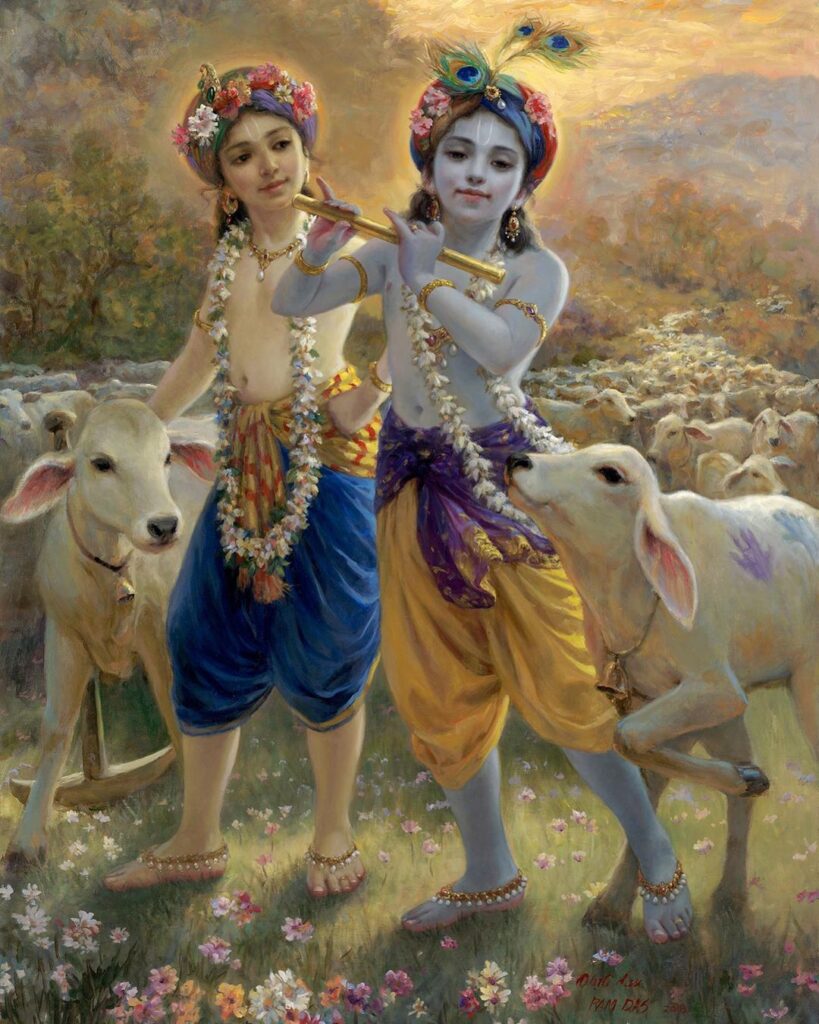
Controlled by the love of His helpless devotees, He ran to me. I fainted with love upon seeing Him. He embraced my neck, and then suddenly fell to the ground. In a moment I became conscious. I carefully freed my neck from His embrace. I saw Him fallen to the ground, unconscious, covered with dust, and muddying the path with streams of tears. The gopis came there and said: “Who has come here? What has he done to the goal of our lives? Alas! Alas! Now we, the people of Vraja, are all dead!” Crying and lamenting in many ways, and saying, “Perhaps he is a servant of the magician Kamsa,” they gathered around Krishna.
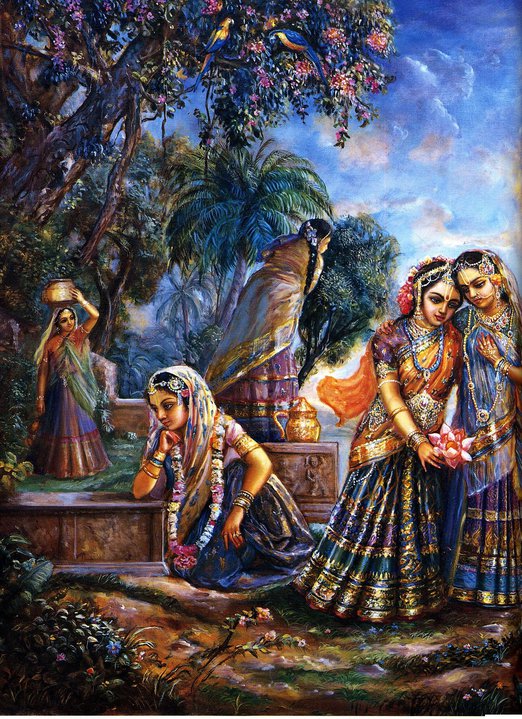
The gopas quickly came. Seeing the situation, they cried pitifully. Hearing the sound of crying, the people of Vraja – Nanda and the gopa men, Yasoda, who dearly loved her son, the other women, and the maidservants, fainting and stumbling as they came – all ran there, crying out, “Alas! Alas!” Then the cows, bulls, calves, black deer, and other animals all came there and, seeing what had happened to Krishna, cried in agony. (Srila Sanatan Goswami explains that the animals all considered Krishna the Lord of their life.) Gently making sounds of love, their faces bathed with tears, approaching Him again and again and smelling Him, they licked Him again and again.
Crying as they flew in the sky above, many grieving birds made a great sound. Their hearts filled with pain, the unmoving trees and plants suddenly became withered and dry. How can I say it in words? All moving and unmoving beings became as if they were dead. Tormented, drowning in an ocean of sorrow, confused about what I had done, placing my head at His feet and crying, I lamented again and again.

Handsome Balarama, whose fair complexion was decorated with blue garments, who was dressed and decorated as His younger brother was, and who was only slightly older than He, with great fear quickly came from far away. (Srila Sanatan Goswami explains that Lord Balarama’s complexion is the colour of a white lotus flower.) Balarama, the leader of the wise, cried at first, but then He became peaceful at heart. He looked about. He took my arms and carefully placed them around the neck of His younger brother. (Srila Sanatan Goswami explains that Lord Balarama looked about to find the cause of His brother’s fainting.) He made my hand stroke Krishna’s handsome limbs. He made me call out to Him with wonderfully sweet words. He made me lift Him from the ground.
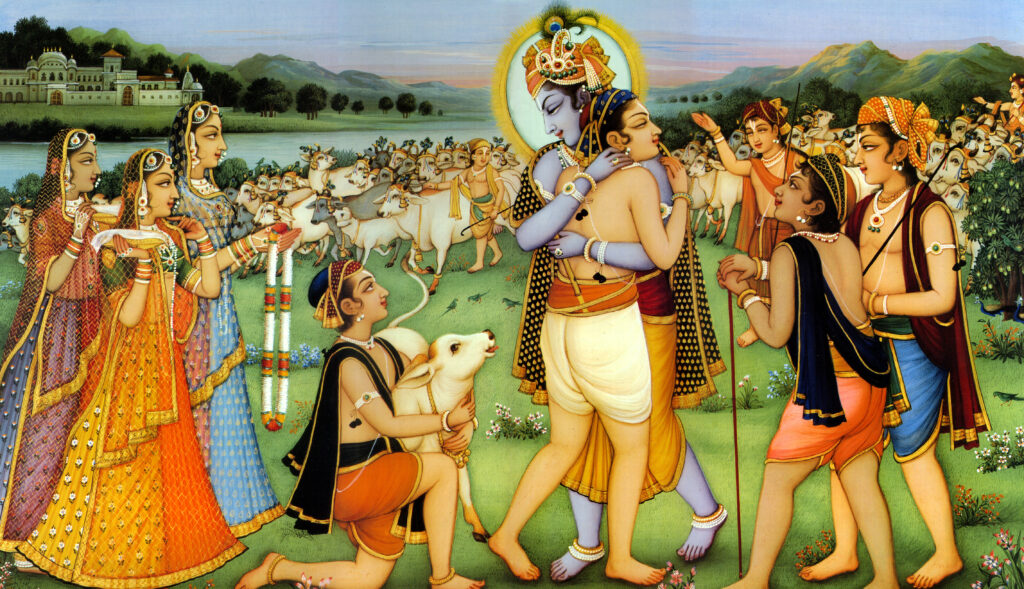
At once, He opened the charming lotus eyes that had been sealed by the streams of tears. Seeing me, He happily embraced and kissed Me. But then, looking around, He became embarrassed. Having attained me, a friend more dear than life who He had not seen for a long time, taking my hand in His left lotus hand, asking me wonderful questions, bringing happiness to the people of Vraja, and walking as gracefully as an elephant, the handsome Lord entered the village of Vraja. …
[Excerpts from Srila Sanatan Goswami’s Sri Brihad-Bhagavatamrita part 2: The Glory of Goloka chapter 6]
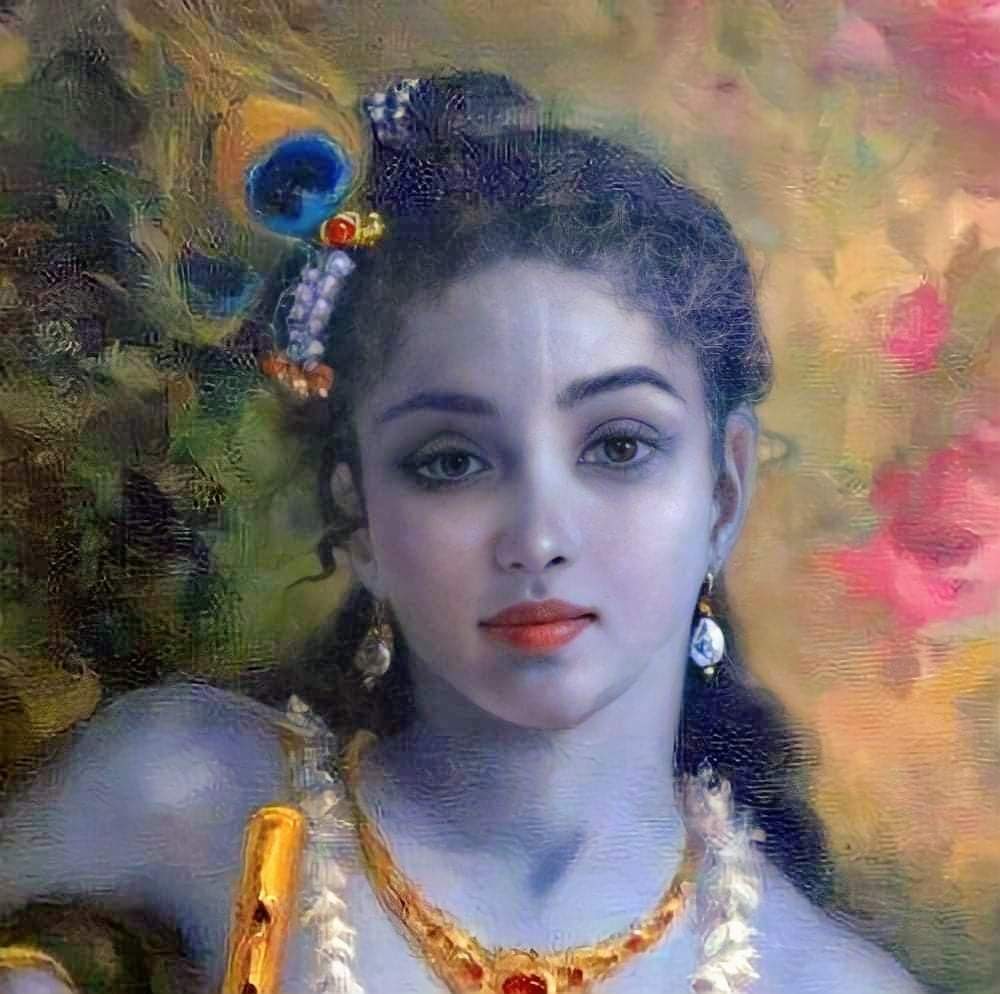
The Brahma Samhita describes that in the spiritual world “every word is a song and every step is a dance.” Krishna loves to dance with the cowherd boys and the cowherd girls, and Their dancing is the source of unimaginable ecstasy. The spiritual world, our real home, is a place of great fun, a never-ending party without the hangovers. Friedrich Nietzsche was a nineteenth century German philosopher who is famous for declaring that “God is dead.” He asserted that the Christian God is no longer a viable source of any absolute moral principles, and that once one stops believing in God, he is no longer bound to follow any religious or moral teachings. However, Nietzsche once remarked: “I would believe in a God who could dance.”
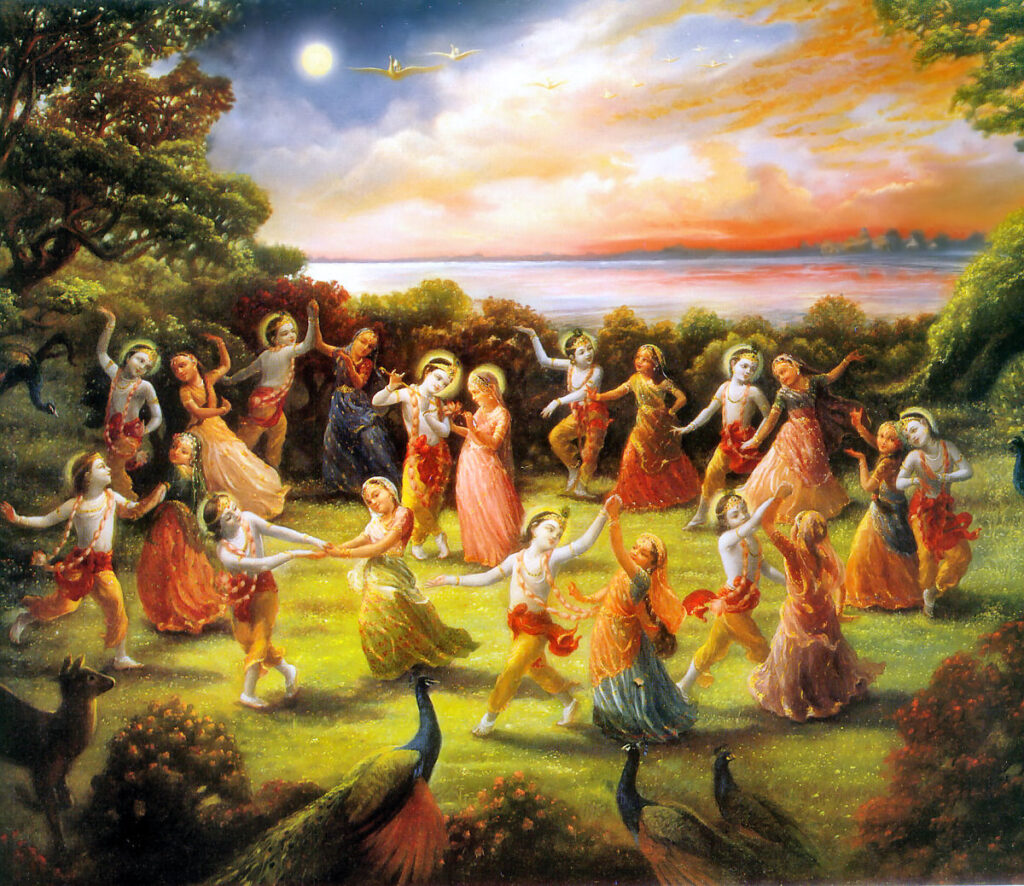
Like many people before and since, Nietzsche thought of religion as simply a long list of “shall nots” – thou shall not do this and thou shall not do that. Perhaps his experience of the Christian churches in nineteenth century Germany was not a lot of fun – many thought of God as a stern old man who sits all day on a giant throne judging the sinners He is about to cast into the Lake of Fire. What most people fail to realize is that the spiritual world, our real home, is a madhouse of fun, a place of unparalleled blissfulness and love for all eternity. Unfortunately Nietzsche didn’t know about Krishna’s wonderful dancing – he hadn’t heard of His dancing the rasa dance with the gopis. Nor would he have known of Lord Chaitanya who is called “Gaura Nataraj,” the “Golden King of Dance.”
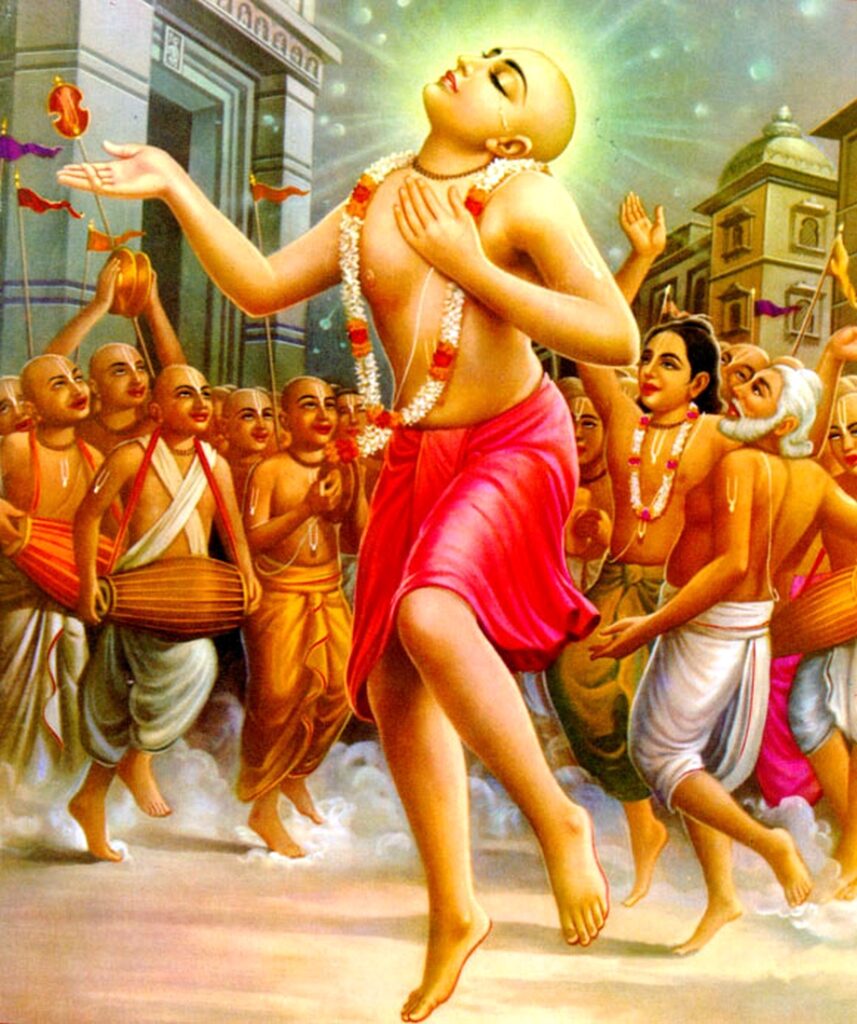
Srila Bhaktivedanta Swami says in a purport to Srimad Bhagavatam:
The real purpose of life is to go back home, back to Godhead, and live with the Supreme Personality of Godhead, play with the Supreme Personality of Godhead, dance with the Supreme Personality of Godhead and eat with the Supreme Personality of Godhead.
[Purport to Srimad-Bhagavatam 8:24:52]
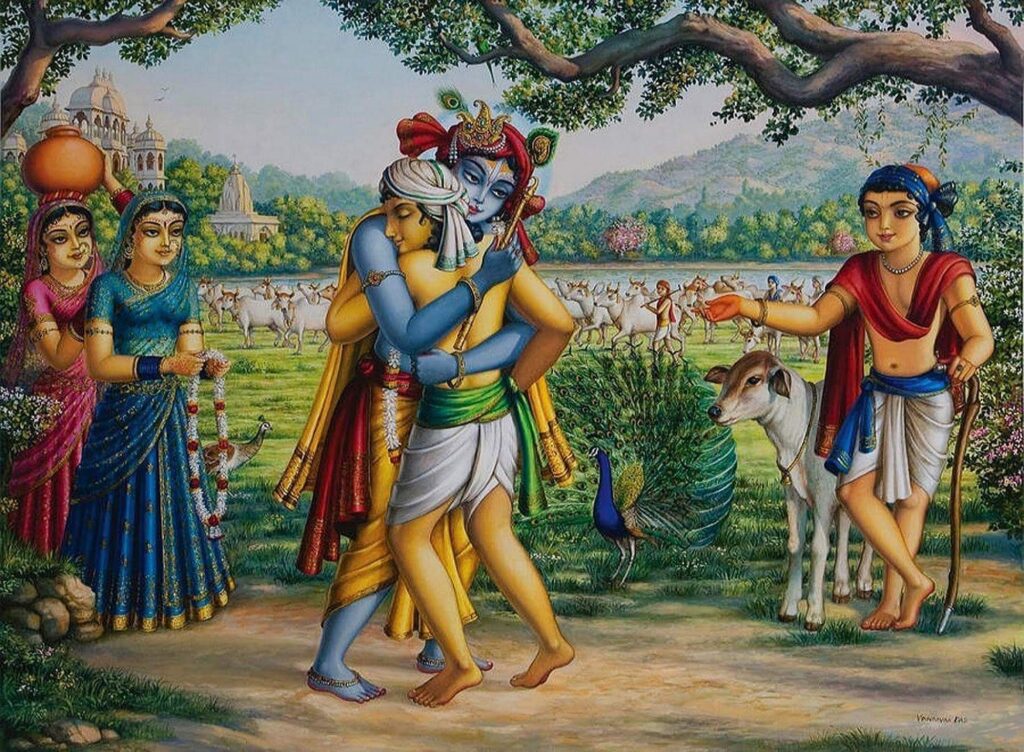

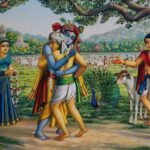
Leave A Reply